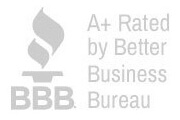5 Steps to Form a Registered Series
Since 2019, the State of Delaware has allowed Series LLCs to create what are known as “registered series”. Unlike “protected series”, establishing a registered series requires making an additional public filing. By qualifying as a registered organization, registered series provide certain business benefits that protected series cannot.
Establishing a registered series under a Delaware Series LLC is straightforward. However, there are some important points you need to consider to establish a registered series the right way. Here we cover the five steps you need to follow to form a Delaware Registered Series.
How To Establish a Delaware Registered Series: 5 Steps
Establishing a Delaware Registered Series involves forming a Delaware Series LLC with a few additional steps.
Step 1.) File A Certificate of Formation
The first step is to form a Delaware Series LLC by filing a Certificate of Formation with the Delaware Secretary of State. The Certificate of Formation is the public document that brings your Series LLC to life.
Filling out the Certificate of Formation in Delaware is simple. The Certificate of Formation for a Delaware Series LLC requires the following:
- The name of the Series LLC,
- the address of the company’s Registered Agent, and
- an additional article providing notice of the company’s ability to establish series.
The additional article should cite Delaware Code Chapter 18, Section 215. This section provides notice to the public that the Series LLC may establish protected and registered series with their own liability shields.
Step 2.) Draft an Operating Agreement
The Series LLC Operating Agreement is the internal company document that details how the Series LLC is structured. The Operating Agreement is a private contract between the members that sets forth their ownership percentages in the company and their management responsibilities in associated series.
Members need to have a properly prepared Series LLC Operating Agreement to ensure that the Series LLC functions properly. The Series LLC Operating Agreement is the starting point, and often the end point, for resolving disputes concerning LLC ownership and liability. A well crafted Operating Agreement can act like a prenuptial agreement between LLC members that provides for fast and fair resolutions to conflicts.
Step 3.) Draft Separate Series Agreements.
Members should include Separate Series Agreements for each registered series as exhibits to the main Series LLC Operating Agreement.
Separate Series Agreements are necessary to establish individual series and provide for their ownership and management. For example, a member could be a manager of one series while having no ownership or management of any of the other associated series. Members can establish these kinds of arrangements within Separate Series Agreements.
Step 4.) Name Registered Series
Delaware law requires registered series to follow strict naming conventions. The name of a Delaware Registered Series must begin with the name of the Series LLC followed by the name of the specific series.
Here is an example of how to name a registered series:
- The first registered series of ABC LLC (A Delaware Series LLC) could be named “ABC LLC Registered Series 1″.
Members of a Delaware Series LLC should maintain a complete list of the names of all associated series.
Step 5.) File a Certificate of Registered Series
The final step to create a Delaware Registered Series is to file the Certificate of Registered Series. The Series LLC needs to file a Certificate of Registered Series with the Delaware Secretary of State for each new registered series it creates.
The Certificate of Registered Series requires the names of both the Series LLC entity and the newly established registered series.
Benefits of a Delaware Registered Series.
Delaware Registered Series qualify as “registered organizations” under the Uniform Commercial Code. This means that a registered series provides some specific benefits that a protected series does not.
Here are some of the benefits of choosing a registered series over a protected series:
- Secured Financing for Registered Series
The primary benefit of a registered series is the ability to obtain secured financing. Since a Delaware Registered Series qualifies as a “registered organization” under the Uniform Commercial Code (UCC), lenders of a registered series can perfect their interests in business assets by filing a Delaware UCC-1 Financing Statement.
Filling a UCC-1 allows lenders to provide public notice of their collateral interest in an asset. Lenders are require to file a Financing Statement to perfect their security interest over an asset.
Registered series benefit from secured financing because the interests of secured creditors are limited to the business assets pledged.
- Obtain a Delaware Certificate of Good Standing.
Unlike traditional, protected series, a Delaware Registered Series is able to obtain a Certificate of Good Standing from the state in its own name. A Certificate of Good Standing is an official document providing proof that a business entity has paid its franchise tax balance and is compliant within its state of formation.
A Certificate of Good Standing serves many important purposes. For example, banks will typically require LLCs to obtain a Certificate of Good Standing before opening a business account. Many states, like New York and Texas, also require Delaware LLCs to obtain a Certain of Good Standing before they can be granted authority to do business within their borders.
How Much Does a Delaware Registered Series Cost?
The costs associated with establishing a Delaware Registered Series under a Delaware Series LLC come in the form of filing fees and annual fees.
Filing the initial Certificate of Formation to create a Delaware Series LLC requires paying a $90 filing fee to the Delaware Secretary of State. In addition, there is another $90 filing fee associated with filing the Certificate of Registered Series to form each registered series.
In regards to annual fees, Delaware requires Series LLC is required to pay annual franchise tax. The Delaware Annual Franchise Tax is a flat fee of $300 due on June 1st of each year after formation.
Delaware requires Series LLCs to make only one franchise tax payment no matter how many individual protected series they create. However, there are additional fees to maintain registered series. Delaware Series LLC owners must pay an annual fee of $75 for each registered series. This fee must be paid to keep the registered series in good standing with the state.
Converting A Protected Series to a Registered Series
If a protected series of a Delaware Series LLC already has significant business history, the members may consider converting the existing protecting series instead of establishing a new registered series. Converting a protected series to a registered requires some additional filings and is more costly than simply creating a new registered series. However, a conversion may be necessary to maintain continuity in the business’ activity.
The following steps are required to convert a protected series to a registered series :
Step 1.) Vote on a Plan of Conversion
All members associated with the particular series must approve a conversion to a registered series.
Series members can prepare a Plan of Conversion document to include with the Separate Series Agreement to document the approved conversion.
Step 2.) File a Certificate of Conversion
After the conversion is approved, members need to file a Certificate of Conversion with the Delaware Secretary of State.
Step 3.) File a Certificate of Registered Series
Next, a Certificate of Registered Series must be filed with the state. This document creates the public record of the registered series. Keep in mind that the name of the registered series needs to follow the naming conventions filed under Delaware law.
Step 4.) Amended the Operating Agreement and Separate Series Agreements
Finally, the Series LLC Operating Agreement should be amended to include the new registered series. In addition, the Separate Series Agreement should also be amended to reflect that the series has been filed as a registered series.

